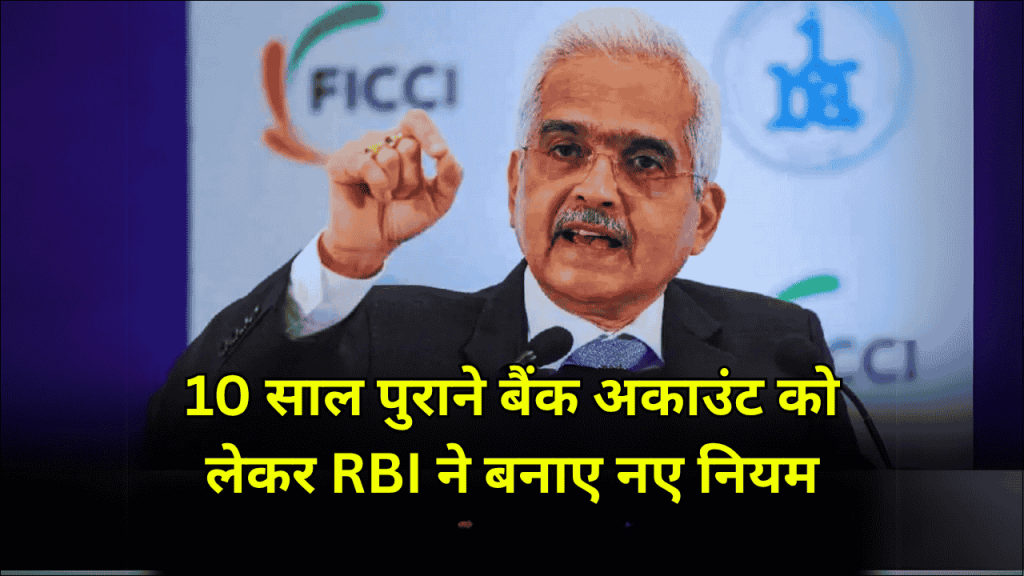The Reserve Bank of India (RBI) has introduced groundbreaking guidelines for bank accounts that have remained inactive for over 10 years, offering significant relief to millions of account holders across the country. These customer-centric regulations aim to simplify the process of reclaiming funds from dormant accounts while enhancing transparency in the banking system.
Understanding Dormant Accounts
Under banking regulations, any account with no transactions for the past 10 years is classified as dormant or inoperative. This includes accounts where neither deposits nor withdrawals have occurred during this extended period. When an account has a remaining balance that hasn’t been claimed for 10 years, it becomes an ‘Unclaimed Deposit.’
| Account Status | Duration | Definition | Action Required |
| Active Account | Regular transactions | Normal banking operations | None |
| Inactive Account | 1-2 years no transaction | Limited operations | Simple reactivation |
| Dormant Account | 10+ years no transaction | Completely inactive | KYC update required |
| Unclaimed Deposit | 10+ years with balance | Money transferred to DEAF | Claim process needed |
Revolutionary Changes in KYC Process
The most significant improvement under the new guidelines is the introduction of video identification processes for KYC updates. This technological advancement eliminates the need for customers to repeatedly visit bank branches, saving both time and effort. The video KYC facility proves particularly beneficial for elderly customers and those residing in remote areas who face difficulties in physically visiting bank branches.
Additionally, banks are now permitted to use registered Business Correspondents for activating dormant accounts. This arrangement proves extremely useful for people living in rural and remote areas, making banking services more accessible and promoting financial inclusion nationwide.
Role of Deposit Education and Awareness Fund (DEAF)
Currently, banks must transfer all balances from dormant accounts to the Deposit Education and Awareness Fund, which operates under RBI’s supervision. This fund serves multiple purposes while protecting account holders’ interests.
RBI Issues New Guidelines for ₹100 Notes, Learn How to Identify Genuine Currency
| DEAF Benefits | Description | Timeline |
| Money Safety | Funds remain secure in DEAF | Indefinite |
| Interest Earning | Account continues earning interest | Annual |
| Easy Claim | Simple process to reclaim funds | Variable |
| Financial Literacy | Funds used for public education | Ongoing |
When someone claims their dormant account, banks return the money along with applicable interest from the DEAF, ensuring complete transparency and protection of account holders’ rights.
Enhanced Bank Responsibilities
Under the new regulations, banks’ obligations have expanded significantly. They must regularly inform customers about their dormant accounts and ensure the KYC update process remains simple and transparent.
| Bank Obligations | Description | Timeline |
| Customer Notification | Regular updates about dormant accounts | Quarterly |
| KYC Facilitation | Provide easy KYC update options | Immediate |
| Digital Platform | Online dormant account information | Ongoing |
| Staff Training | Train employees on new regulations | Within 30 days |
| Service Availability | Ensure Video KYC and BC services | Continuous |
Banks must also provide information about dormant accounts on digital platforms, allowing customers to check their account status online and initiate the reactivation process.
Streamlined Reactivation Process
The reactivation process has been significantly simplified for maximum customer convenience. Account holders can initiate the process through multiple channels including online platforms, video calls, or through Business Correspondents. Required documents include valid identity proof, address proof, and existing account-related documents.
The video KYC process can be completed from home using a smartphone or computer with internet connectivity. Once KYC update is completed and verified, the account becomes active immediately, allowing customers to access their funds along with accumulated interest. The entire process typically takes 2-7 working days depending on verification requirements.
Impact on Financial Inclusion
These new rules significantly contribute to financial inclusion by making banking services more accessible to rural and remote populations. Business Correspondent networks extend banking reach to areas previously underserved by traditional branch banking, while video KYC technology bridges the digital divide by providing sophisticated banking services regardless of location.
Future Outlook
The RBI may introduce further improvements to these rules in the future, potentially reducing the dormancy period or introducing even simpler processes. Under Digital India initiatives, these processes may become completely online in the coming years, promising even greater convenience and accessibility for customers across all demographics and geographical locations.
